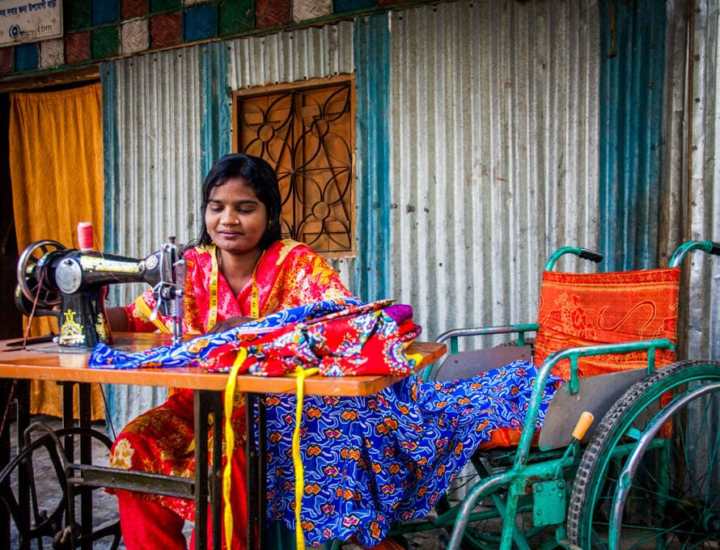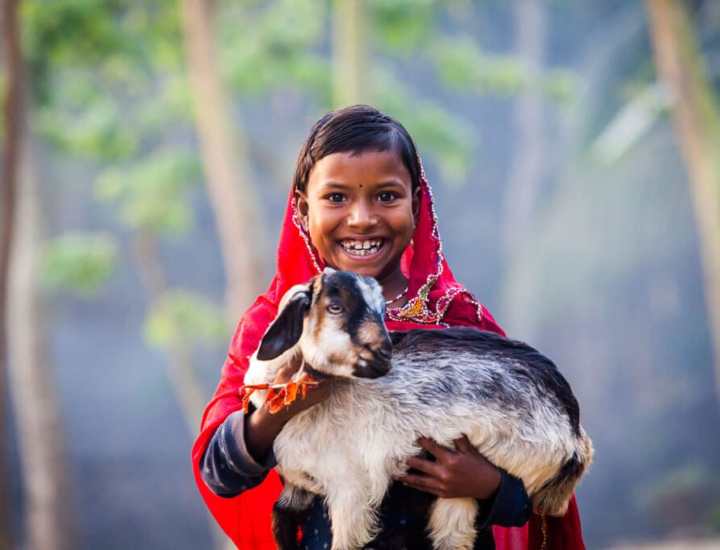Supporting people with disabilities to earn an income
Poverty and disability fuel each other creating a cycle of inequality, isolation and exclusion that is often difficult to break. For people with disabilities, earning an income empowers an individual, it brings the respect of others including family and it enables other opportunities. We believe one of the key solutions to end poverty is to work towards developing communities, with a focus on people with disabilities who are often overlooked. Your donation to CBM Australia will help support families to gain access to loans, equipment, education and more to help build a more positive future not just for themselves but their entire community.
Role in economic development
Livelihood or ‘decent work’ as defined by the International Labour Organisation (ILO) is the right of every person. Decent work for people with disabilities puts more than money in their pocket — it places value on their humanity, generating self-respect and acceptance from others in their community.
At a broader level, a focus on livelihood contributes towards alleviating poverty and improving the economy. It is a powerful strategy for inclusive development.
CBM aims to ensure people with disabilities have equal access to social and economic activities including work or sustained livelihood.


We partner with organisations across the globe with a similar mission to provide development aid, to reduce barriers to employment and promote participation in work for people with disabilities.
Our influence begins at a grassroots level and extends to advocating for policy changes at a government level. Livelihood is commonly a key component of our inclusive community development work. Access to rehabilitation or devices is often a key enabler to participating in training or work or a livelihood.
Our focus
- Being advocates for households with people with disabilities to have access to education, training and necessary equipment required to undertake jobs in their communities
- Improving production and business practices to ensure support for people with disabilities
- Building community assets
- Encouraging women as well as men to be able to work and secure jobs which help lower community poverty levels
- Improving physical access and transportation networks
- Advocating for better local regulations to drive disability inclusiveness
- Development of laws and policy promoting assistance and social networks
- Enabling participation through access to rehabilitation and assistive devices, including wheelchairs and crutches
In our experience successful strategies bring the foundations for inclusion:
- Changing attitudes and increasing confidence and motivation
- Developing links with mainstream microfinance providers
- Testing new approaches such as Village Savings and Loans Associations (VSLAs)
- Involving the whole family in supporting individual livelihood plans
- Developing strong connections with rehabilitation services, mental health assistance and the provision of assistive devices
A small charitable contribution can help save many lives and allow children growing up in a cycle of poverty to break the cycle. The ability to provide equipment, medical care or disability assistive equipment has a ripple effect on entire communities living below the poverty line and experiencing hardships due to famine, limited medical care or the lack of basic necessities such as clean water and food. Help a family in need. Donate today.
